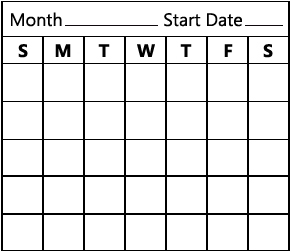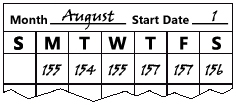Heart Failure: Tracking Your Weight
Heart Failure: Tracking Your Weight
You have a condition called heart failure. When you have heart failure, a sudden weight gain or a steady rise in weight is a warning sign that your body is retaining too much water and salt. This could mean your heart failure is getting worse. If left untreated, it can cause problems for your lungs and result in shortness of breath. Weighing yourself each day is the best way to know if you’re retaining water. If your weight goes up quickly, call your doctor. You will be given instructions on how to get rid of the excess water. You will likely need medicines and to avoid salt. This will help your heart work better.
Call your doctor if you gain more than 2 pounds in 1 day, more than 5 pounds in 1 week, or whatever weight gain you were told to report by your doctor. This is often a sign of worsening heart failure and needs to be evaluated and treated. Your doctor will tell you what to do next.
Tips for weighing yourself
Weigh yourself at the same time each morning, wearing the same clothes. Weigh yourself after urinating and before eating.
Use the same scale each day. Make sure the numbers are easy to read. Put the scale on a flat, hard surface — not on a rug or carpet.
Do not stop weighing yourself. If you forget one day, weigh again the next morning.
How to use your weight chart
Keep your weight chart near the scale. Write your weight on the chart as soon as you get off the scale.
Fill in the month and the start date on the chart. Then write down your weight each day. Your chart will look like this:
If you miss a day, leave the space blank. Weigh yourself the next day and write your weight in the next space.
Take your weight chart with you when you go to see your doctor.
Updated:
March 21, 2017
Sources:
Heart Failure Self Management, Up To Date, Krumholz G, Patterns of Weight Change Preceding Hospitalization for Heart Failure, Circulation (2007); 116(14); pp. 1549, White, MF., Self-Care Guide for the Heart Failure Patient, 2014, 129, pp. e293-294
Reviewed By:
Fetterman, Anne, RN, BSN,Gandelman, Glenn, MD, MPH,Images reviewed by StayWell art team.

